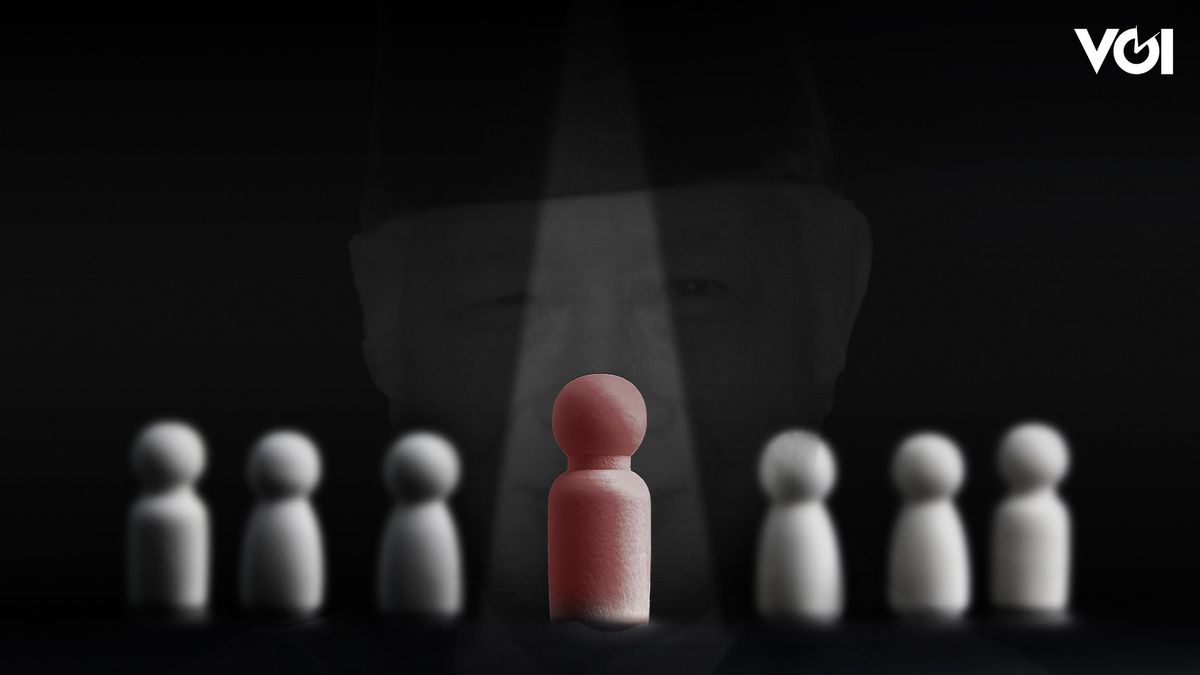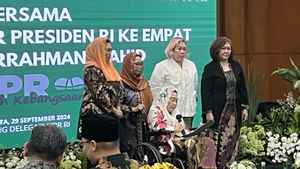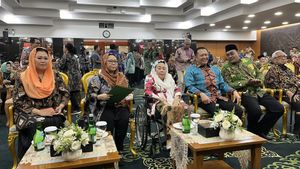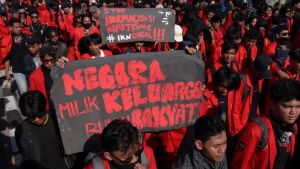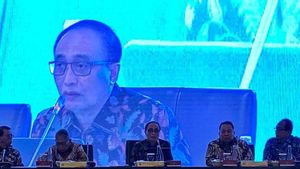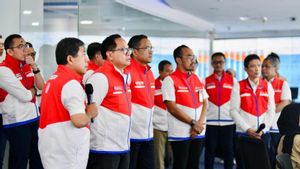JAKARTA The People's Consultative Assembly (MPR) officially revoked the name of the Second President of the Republic of Indonesia, Suharto, from Article 4 of the MPR TAP Number 11 of 1998 concerning the Implementation of a State that is free from corruption, collusion and nepotism (KKN). This decision was announced by the Chairman of the MPR, Bambang Soesatyo, in the Final Session of the MPR Term for the 2019-2024 Period on Wednesday, September 25, 2024.
"Soeharto's name at TAP was declared complete, because he had died," said Bamsoet. This decision is a follow-up to the Golkar Faction letter on September 18, 2024 which was later approved at the joint MPR meeting on September 23, 2024.
Suharto was charged in a corruption case involving seven social foundations, with the estimated state losses of Rp1.7 trillion and US$419 million. Even so, the Attorney General's Office stopped the investigation in 2006 on the grounds that there was insufficient evidence and because Suharto had died in 2008.
SEE ALSO:
Bamsoet emphasized that even though Suharto's name was removed from the MPR TAP, the TAP still applies to encourage the eradication of KKN in Indonesia. However, personally, Suharto's responsibility was considered complete because he had died. This decision, according to Bamsoet, is also a form of respect for the services of the former president of Indonesia, although there was a shortage during his leadership.
Various Reactions From Observers
This decision sparked various reactions from observers and legal experts. Bivitri Susanti, Chair of the Presidium of the Constitutional Law Society, assessed that the MPR's decision reflected a political reluctance to punish the president. According to him, in democracy, political accountability must still be enforced, regardless of humanitarian relations. Suharto is already dead, but political accountability must still exist," said Bivitri on September 29, 2024.
Bivitri is worried that this decision can create a pattern of forgiveness for the mistakes of the former president without considering the legal and constitutional aspects. He also reminded that the abolition of Suharto's name could lead to bad precedents in the future, including for the current president, Joko Widodo.
In line with Bivitri, Amnesty International Indonesia Executive Director, Usman Hamid, assessed that the abolition of Suharto's name has the potential to ignore the rights of victims of past human rights violations. Usman assessed that the crimes of human rights and corruption that occurred in the Suharto era had not been thoroughly investigated, and this elimination further narrowed the space for civil society and victims to demand justice.
Reconciliation Or Forget Past Mistakes?
On the other hand, several legal experts considered the abolition of Suharto's name as a reconciliation measure. Former Chief Justice of the Constitutional Court, Jimly Asshiddiqie, stated that there was no strong legal evidence related to the alleged KKN Suharto, so that his revocation from the TAP MPR could be seen as part of a reconciliation effort. "We must forget the past and not hold grudges," said Jimly.
Constitutional law expert, Mahfud MD, also emphasized that all legal matters related to Suharto had been completed. According to him, there is no need for new legal action against the former President of the Republic of Indonesia.
Deputy Chairperson of the MPR, Hidayat Nur Wahid, emphasized that the revocation of Suharto's name from the MPR TAP had nothing to do with President Joko Widodo. He said this decision was a follow-up to the letters received by the MPR, including letters related to the first President of the Republic of Indonesia, Soekarno, and former President Abdurrahman Wahid (Gus Dur).
This MPR decision opens discussions about the extent to which national reconciliation can run in line with respect to justice. While some parties support this decision as a step to forget past grudges, others are concerned about its impact on law enforcement and democracy in the future.
The English, Chinese, Japanese, Arabic, and French versions are automatically generated by the AI. So there may still be inaccuracies in translating, please always see Indonesian as our main language. (system supported by DigitalSiber.id)
